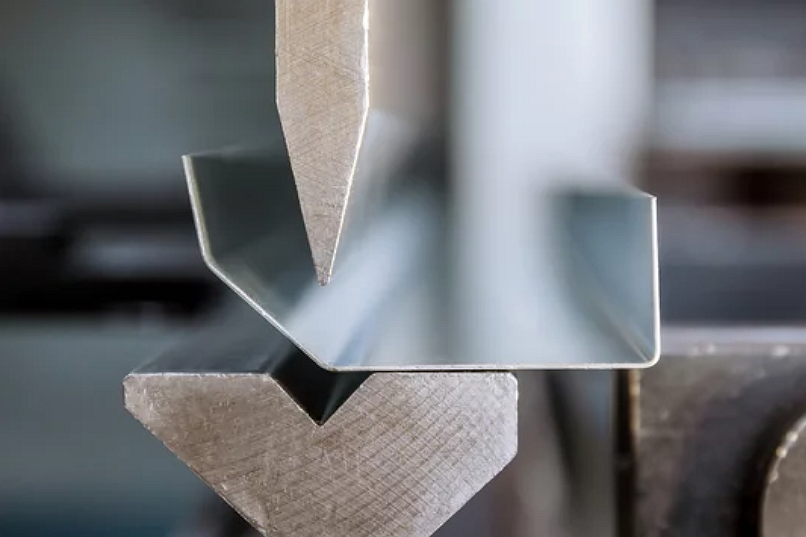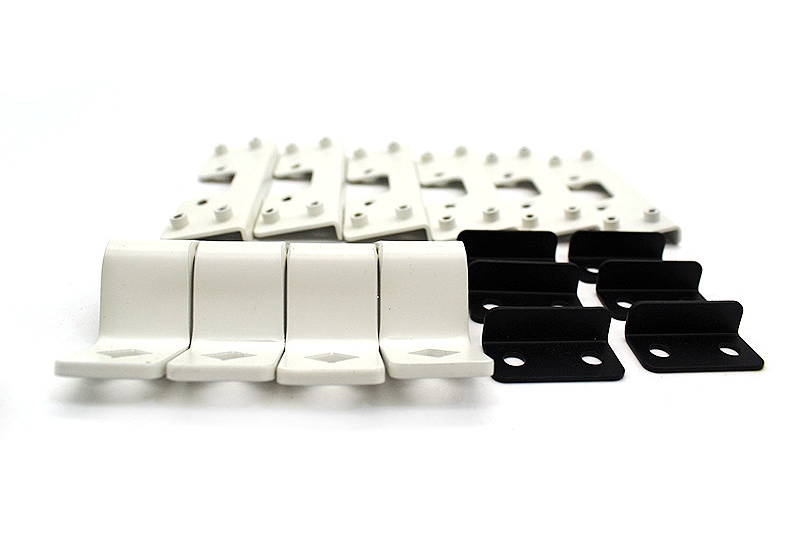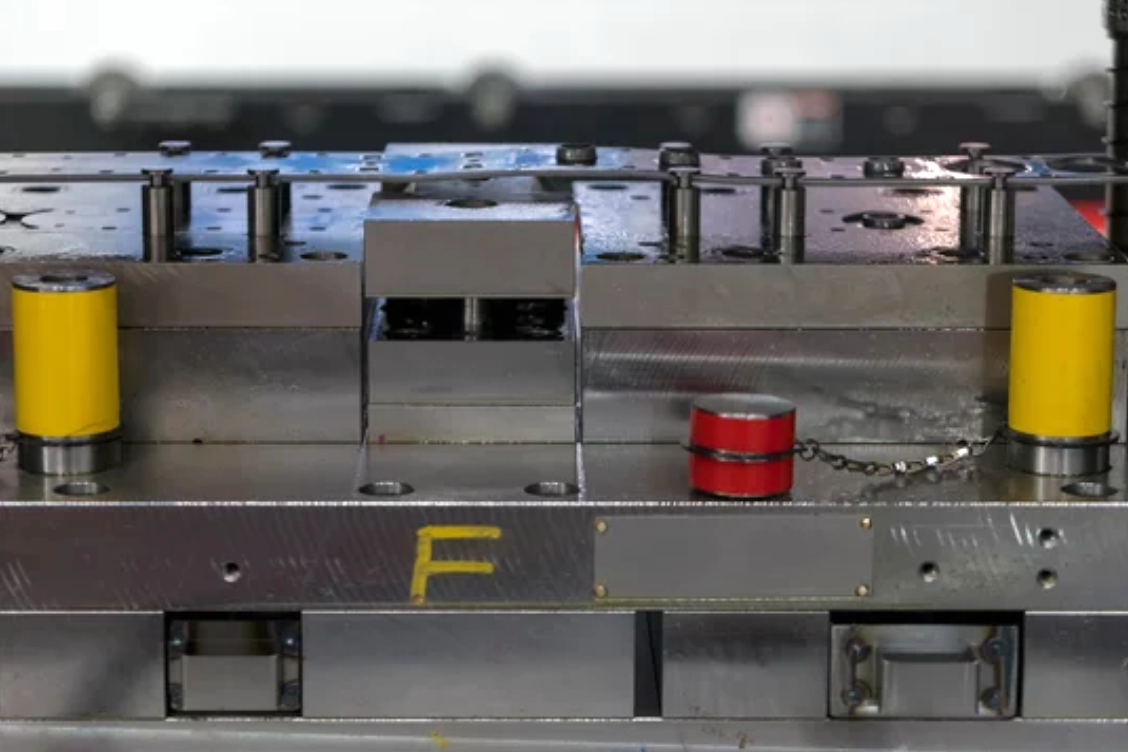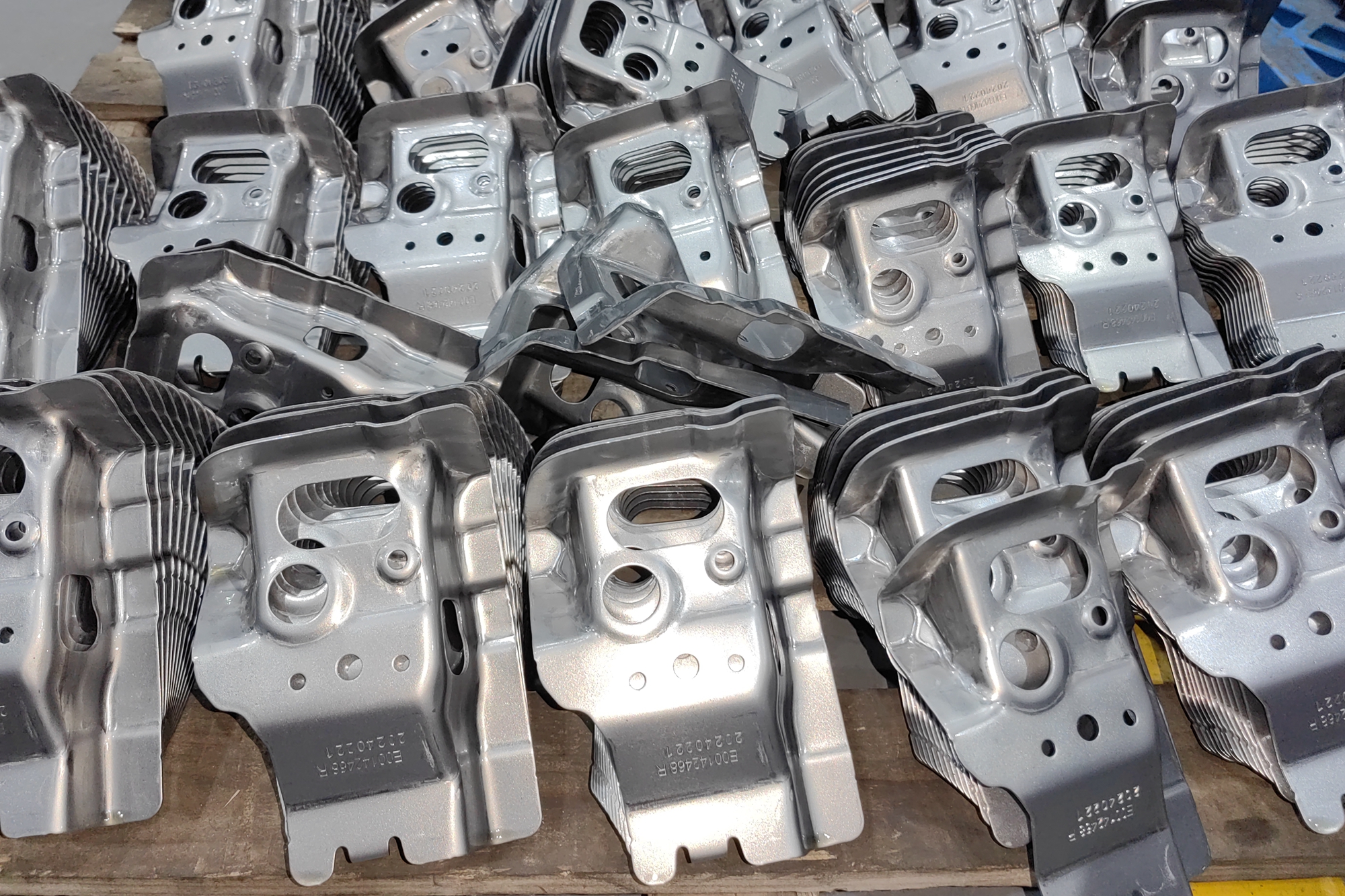What is Sheet Metal Bending Service?
Sheet metal bending is an essential step in sheet metal fabrication. The sheet metal is usually cut into a specific shape by laser cutting or plasma cutting, then bent and welded to form the necessary sheet metal components.

Sheet Metal Bending
Sheet metal bending forms thin sheet metal into permanent curved or angled shapes using machinery and dies. It is an essential fabrication technique for many industries in creating enclosures, brackets, ducts, panels, and various components.
Sheet metal bending services transform flat sheet metal or metal coils into custom bent parts by altering the material shape through controlled deformation. Professional sheet metal fabricators have the expertise and equipment to meet the bending needs of companies and individuals.
Sheet Metal Bending Types
- Press Brake Bending: Press brakes with a punch and die sets are the primary method used for most sheet metal bending. The sheet is clamped and pressed between the punch and die to form bends and angles to specified dimensions.
- Rolling/Roll Bending: Rolling can gradually form gentle long bends and cylinders in sheets using a 3-roll bending machine.
- Folding: Folding machines apply bending and pressure to form folded flat patterns into boxes, pans, and trays.
- Rotary Bending: Rotary bending is used for bending tubes and pipes to precise angles and radii.
- Custom Fabrication: Besides bending, fabricators can provide complete fabrication, including shearing, punching, welding, finishing, and assembly.
Benefits of Metal Bending
- Precision and Accuracy: Modern press brakes and other bending machinery allow for exact and repeatable bends. Computer controls ensure accuracy.
- High Strength: The controlled deformation of the bending process creates smooth, uniform bends that maintain strength. There is minimal stretching or thinning.
- No Welding: Bent enclosures and components are formed from a single sheet with no welds, maintaining structural integrity.
- Fast Turnaround: Sheet metal bending is a fast fabrication technique allowing quick turnaround of orders and prototypes. Simple parts can ship in days.
- Cost Effective: Bending avoids the high costs and lead times associated with tool and die production for stamping or forging. Short runs can be economically produced.
- Design Flexibility: Bending offers broad design freedom compared to metal stamping. Parts can be quickly iterated and optimized.
Metal Bending Applications
Sheet metal bending produces components and enclosures for almost every industry. Typical applications include:
- HVAC Ductwork and Fittings
- Medical Equipment Housings
- Food Processing and Kitchen Equipment
- Electronics Enclosure and Chassis
- Laboratory Furnaces and Chambers
- Chemical Processing Tanks and Vessels
- Kiosks and Displays
- Brackets, Clamps, and Mounts
- Architectural Paneling and Decor
- Truck, Trailer, and RV Bodies
- Dust and Powder Collection Hoppers
- Chutes, Guards, and Safety Barriers
Ideal Bending Materials
Sheet metal bending is highly effective at forming:
- Mild Steel: Low carbon steel has good bendability and maintains strength after bending. It is the most commonly bent metal.
- Stainless Steel: Stainless can be bent to tight radii while resisting corrosion. It is essential for sanitary designs.
- Aluminum: Aluminum's lightweight and bendability make it ideal for enclosures and decorative covers.
- Copper: Copper and brass bend smoothly for architectural and decorative applications.
- Galvanized Steel: Galvanized steel has added corrosion resistance and can be painted post-bending.
Minimum Bend Radii
The minimum bend radius varies based on the material thickness. Smaller bend radii are achievable with thinner sheets. As a general guideline:
- 16 Gauge Mild Steel: Minimum inside bend radius equals material thickness. (0.060")
- 14 Gauge Mild Steel: Minimum inside bend radius is 1.5 x thickness. (0.105")
- 12 Gauge Mild Steel: Minimum inside bend radius is 2 x thickness. (0.250")
- 1/4" Mild Steel: Minimum inside bend radius is 2.5 x thickness. (0.625")
Neway's sheet metal bending services can bend metal exactly to spec for any custom fabrication project while avoiding costly trial and error. They offer fast, high-quality production of bent metal components.



